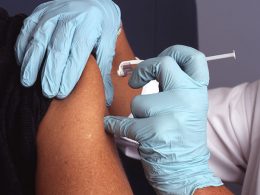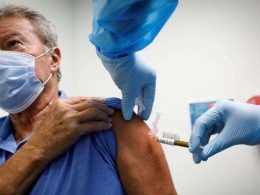Three top scientists have offered their views and advice regarding the controversy surrounding the transmission of coronavirus via airborne droplets and aerosols. Atmospheric chemist Kimberly Prather, airborne virus expert Linsey Marr, and environmental health professor Donald Milton, agree that COVID-19 is airborne and offer advice on the best way to reduce risks of infection.
The three scientists established that breathing plays a major role in COVID-19 infections, and this is large because the droplets or aerosols from an infected person can travel more than the 6 feet acknowledged by the World Health Organization (WHO) but yet to be fully acknowledged by the US Centers for Disease Control and Prevention (CDC).
For starters, the National Academies of Sciences, Engineering, and Medine defined droplets as bigger than 100 microns and falling to the ground within 6 feet, and aerosols as tinier than 100 microns and able to travel farther than 6 feet to infect people. To this extent, it is far more likely to inhale aerosols from a farther range since they get concentrated and hang in the air than droplets which are heavier and fall to the ground at very short distances of less than 6 feet.
Based on this, the primary manner of COVID-19 infection for most people appears from inhaling droplets or aerosolized COVID-19 virus from infected but symptomatic or asymptomatic people who talk, breathe, sneeze, and laugh around us. To this extent, the three scientists recommend that maintaining physical distances of farther than 6 feet in best in indoor and outdoor settings and that wearing face masks indoors and outdoors is best for protection.
The scientists also said it is good to always purify indoor air through filtration, or in other cases increase ventilation by keeping doors and windows open for long periods of time when people are inside. They also recommend taking meetings outdoors instead of indoors so that the possibility of inhaling aerosols and droplets from people can be minimized. But all things being equal, they said the use of face masks should never be discounted.
Since the WHO has stated that “short-range aerosol transmission, particularly in specific indoor locations, such as crowded and inadequately ventilated spaces over a prolonged period of time with infected persons cannot be ruled out,” people should heed the CDC’s updated guidance that COVID-19 spreads “through respiratory droplets or small particles, such as those in aerosols, produced when an infected person coughs, sneezes, sings, talks or breathes. These particles can be inhaled into the nose, mouth, airways, and lungs and cause infection. This is thought to be the main way the virus spreads.”
Source: msn.com









